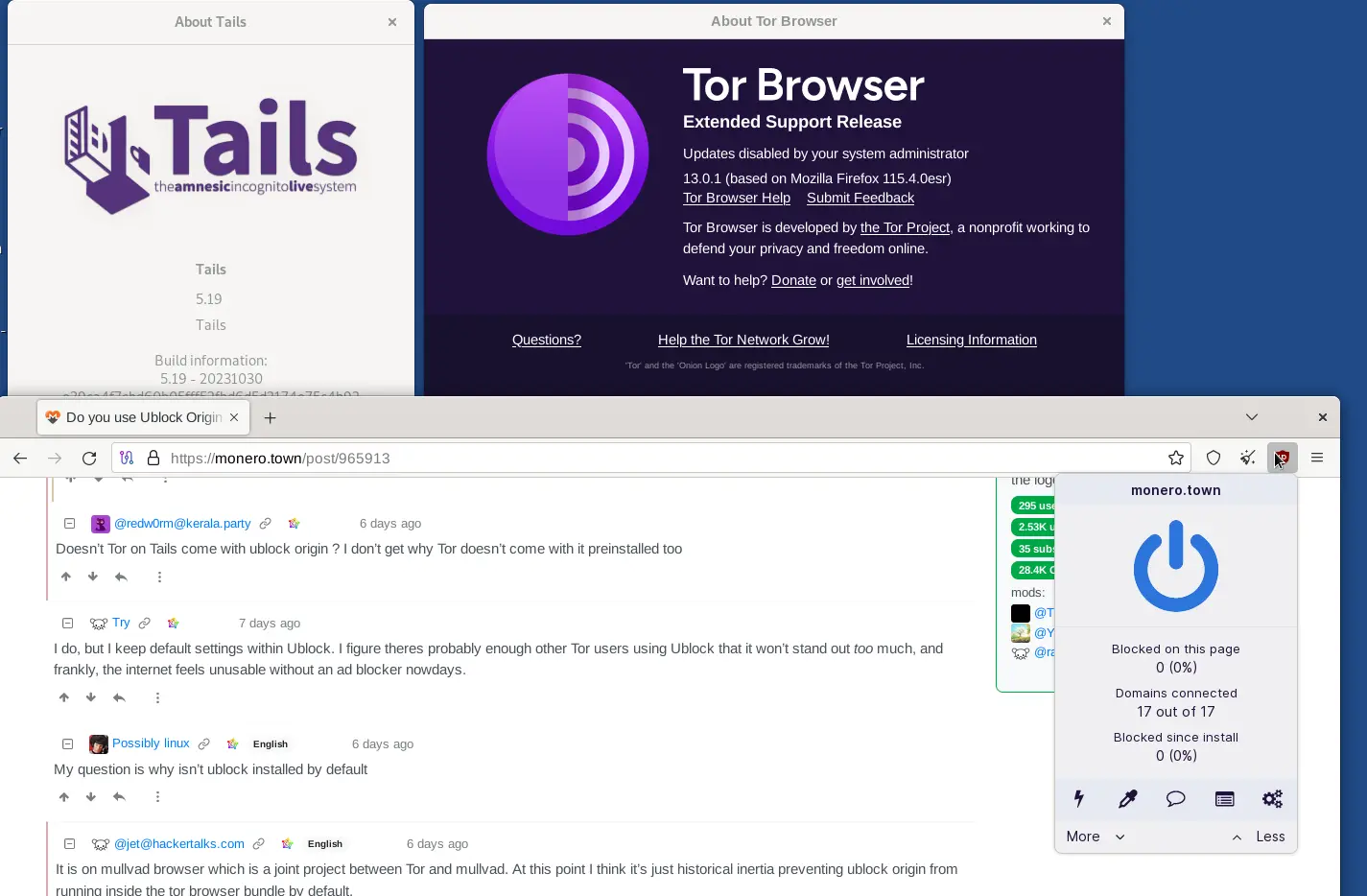Tor Browser is planning to remove Google from the search engine options a user can choose: https://gitlab.torproject.org/tpo/applications/tor-browser/-/issues/41835
There some say brave onion + no JS is good: https://search.brave4u7jddbv7cyviptqjc7jusxh72uik7zt6adtckl5f4nwy2v72qd.onion/
Mullvad team seems to be considering 4 possible options:
- Startpage: https://www.startpage.com/
- Mojeek: https://www.mojeek.com/
- Brave Search: https://search.brave.com/
- Metager: https://metager.org/
PS: Not disgussing ddg / ddg onion too much, basically because ddg is the long-time default search engine of TB. Most TB users assume ddg is a decent, standard, generic option, esp. its non-JS version.





For those who are still on Win 7: Firefox (and so Tor Browser) will stop supporting Win 7 soon. Seriously, you better plan to migrate to Linux. Not-so-good privacy issues aside, everyone knows Windows is not very secure/safe/convenient anyway.